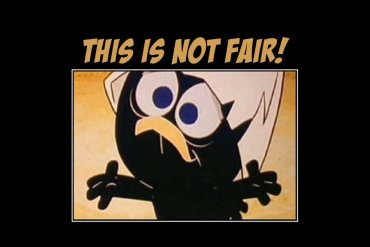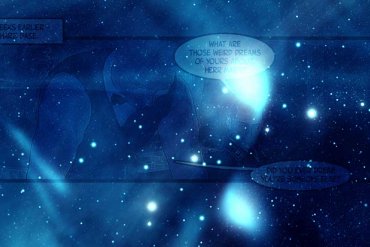The world has never had a good definition of the word liberty, and the American people, just now, are much in want of one. We all declare for liberty; but in using the same word, we do not mean the same thing. . . . Here are two, not only different, but incompatible things, called by the same name, liberty. — Abraham Lincoln The quotation above is taken from Abraham Lincoln, The Writings of Abraham...
Philosophy
Everything on philosophy related to Maier files series. Posts and Thoughts examining existence, change, properties, space, time, causality, and possibility.
The year was 2081, and everybody was finally equal. They weren’t only equal before God and the law. They were equal every which way. Nobody was smarter than anybody else. Nobody was better looking than anybody else. Nobody was stronger or quicker than anybody else. All this equality was due to the 211th, 212th and 213th Amendments to the Constitution, and to the unceasing vigilance of agents of the United States Handicapper General. So began...
Goethe had quite an important influence on Otto Maier. Goethe, a poet and at the same time a scholar, who seemed to offer the model of an approach to nature that was both scientific and aesthetic. Let’s take a look at a peculiar dedicatory page in a published book of Humboldt and Bonpland. From July 16, 1799, to March 7, 1804, the German scholar Alexander von Humboldt, together with the french botanist Bonpland, had embarked...
When it is exclaimed that contradictions may very well be true, numerous analytic philosophers will screw up their face into an appearance of discomfort, and say ‘But I just don’t see what it could be for a contradiction to be true’. They could mean numerous things by this. ‘See’ might just mean ‘understand’, by which case they might be complaining that traditional two-valued semantics leaves no room, as it were, for something to be both...
The attentive reader of the first episodes of Maier files will have noticed that the tale once told by Rolf Dietrich and the history of Otto Maier are filled with powerful themes and images that might provide a clue to the real hidden mystery, among them: the Rose Trail (Troj de Reses), web of woven silk, the knights in the line of Dietrich von Bern, the enchanted windmill, fiancée of the Month of May, the...
Otto Maier and his theory about waves, reality and time curves are rooted in the works of the men he looked up to, Leibniz and Descartes. In his “First Meditation” (1641), French philosopher and mathematician René Descartes decided he could not be absolutely sure he wasn’t dreaming. Most people would probably disagree with Descartes. You’re not dreaming right now, and you know it because experiences in dreams are different from those in waking life. A...
Meister Eckhart (the thirtheenth-century German mystic) once said, “if you fight your death, you’ll feel the demons tearing away your life, but, if you have the right attitude to death, you will be able to see that the devils are really angels setting your spirit free. In the ancient belief systems, the being who guides the human spirit through the underworld and helps negotiate the way past the guardian demons is the god of planet...
Envision for a minute that there is a Very High and amazingly old Civilization. It has achieved the summit of its social and logical accomplishment. At that point, in an erupsion of frenzy and greed, it destroys itself in a Great War. As the untold annihilation achieves its peak and the colossal complexity of its science and innovation — the very science and innovation it has used to wage its war — can never again...













